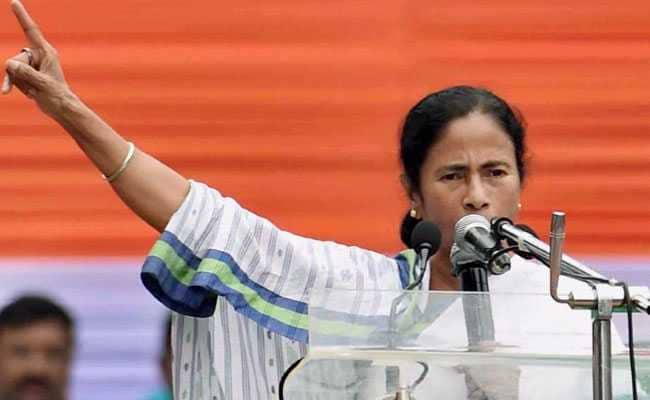
The Supreme Court is hearing various petitions against different aspects of Aadhaar
New Delhi:
As the head of a state government, Mamata Banerjee is out of line for challenging the mandatory use of Aadhaar for welfare schemes, the Supreme Court said today, rebuking the West Bengal Chief Minister. But one part of Ms Banerjee's petition found some resonance: judges have asked the centre to explain in a month why it's necessary for Indians to link their cellphones to their Aadhaar or unique 12-digit ID, the deadline for which has been set for February next year.
Ms Banerjee last week said that she would refuse to couple her mobile phone connection with her Aadhaar, even if that meant she would lose her cellphone service. Telecoms have been told that they must verify their customers against their Aadhaar, and all future phone connections must not be issued without an Aadhaar check, which has been objected to in the top court.
On Friday last, Ms Banerjee took the centre to court, stating that any move to make Aadhaar necessary to collect benefits of welfare schemes violates the right to privacy.
"In a federal structure, how can a state file a plea challenging parliament's mandate," the judges responded today. "We know it is a matter that needs consideration but you satisfy us how a state can challenge it."
 Aadhaar creates the world's largest biometric database by pooling iris scans and fingerprints of over a billion Indians linked to their Aadhaar cards. Critics who have gone to the Supreme Court where their case is still being heard argue that by making the disclosure of Aadhaar a pre-requisite for all financial transactions including tax returns and bank loans, the government can profile Indians and spy on them, and that the data is not secure -- there are frequent cases of leaks and Aadhaar numbers being mistakenly displayed including on government websites.
Aadhaar creates the world's largest biometric database by pooling iris scans and fingerprints of over a billion Indians linked to their Aadhaar cards. Critics who have gone to the Supreme Court where their case is still being heard argue that by making the disclosure of Aadhaar a pre-requisite for all financial transactions including tax returns and bank loans, the government can profile Indians and spy on them, and that the data is not secure -- there are frequent cases of leaks and Aadhaar numbers being mistakenly displayed including on government websites.
But the government and advocates of Aadhaar point out that it is essential to streamlining the payment of benefits and cutting out massive wastage and fraud along with increasing transparency. They also say that Aadhaar's widespread use will increase the sparse base of taxpayers.
In August, the Supreme Court ruled that privacy is a fundamental right; while those fighting Aadhaar welcomed the move, the government stressed that the right to privacy comes with reasonable restrictions, which should include Aadhaar.
Ms Banerjee last week said that she would refuse to couple her mobile phone connection with her Aadhaar, even if that meant she would lose her cellphone service. Telecoms have been told that they must verify their customers against their Aadhaar, and all future phone connections must not be issued without an Aadhaar check, which has been objected to in the top court.
On Friday last, Ms Banerjee took the centre to court, stating that any move to make Aadhaar necessary to collect benefits of welfare schemes violates the right to privacy.
"In a federal structure, how can a state file a plea challenging parliament's mandate," the judges responded today. "We know it is a matter that needs consideration but you satisfy us how a state can challenge it."

Mamata Banerjee said she won't link mobile with Aadhaar even if connection is cut
But the government and advocates of Aadhaar point out that it is essential to streamlining the payment of benefits and cutting out massive wastage and fraud along with increasing transparency. They also say that Aadhaar's widespread use will increase the sparse base of taxpayers.
In August, the Supreme Court ruled that privacy is a fundamental right; while those fighting Aadhaar welcomed the move, the government stressed that the right to privacy comes with reasonable restrictions, which should include Aadhaar.
Track Latest News Live on NDTV.com and get news updates from India and around the world

